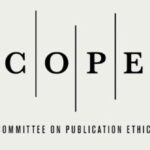Badeea M. Ali Al-Bhar¹ and Abdulazeez Y. T. Al-Saffawi²
¹Department of Biology, College of Education for woman Mosul University Iraq
²Department of Biology, College of Education for pure Sci. Mosul University Iraq
*Corresponding author: alsaffawia2025@uomosul.edu.iq
Received: Aug 24, 2021 / Revised: Sept 20, 2021/ Accepted: 29 Sept, 2021
Abstract
The current study included estimating the concentration of nitrate ions to estimate human health risks (HHR) for groundwater for ten wells in Al-Manara village of Al-Hamdaniya District within Nineveh Governorate. The results indicated that the nitrate levels ranged between (10.8 to 19.1) ppm, thus 100% of the studied samples were within the international standard limits allowed for drinking, which reflected in the CDI and HQ values that fluctuated between (0.8691 to 0.2980) mg/kg. day and (0.5432 to 0.1862) consecutively, which are within the Safe limits for public health when this water is used for drinking by the local population
Keywords Groundwater for Al-Manara village, Nitrate, CDI. HHR.
How to cite this article
Al-Bhar, B.M.A., and Al-Saffawi, A.Y.T. (2021). Health effects of nitrate concentrations in the groundwater of Al-Manara village, north-east of Mosul city, Iraq. Science Archives, Vol. 2 (3), 267-271. http://dx.doi.org/10.47587/SA.2021.2319
References
Adimalla N. and Peiyue, L. (2019). Occurrence, health risk, and geochemical mechanisms of fluoride and nitrate in groundwater of the rock-dominant semi-arid region, Telangana state, India. Human and Ecology Risk Assessment; An Int. J. 25(1-2): 81-103. Doi.org/10.1080/10807039.2018.14800353
Adimalla, N. and Qian, H. (2019). Groundwater quality evaluation using water quality index (WQI) for drinking purposes and human health risk (HHR) assessment in an agricultural region of Nanganur, south India. Ecotoxicology and Environmental Safety 176: 153–161. www.elsevier.com/locate/ecoenv
Al-Bhar, B. M. A. and Al-Saffawi, A. Y. T. (2021). An environmental and qualitative study for the assessment of ground water for Al-Manara village northeast of Mosul city, using the Canadian model (CCMEWQI). Accepted in the Int. conference on industry-academia initiatives in biotechnology and chemistry (iCIABC21) being held 20-21 December 2021 virtually. Faculty of Industrial Sci. and Techn. University of Malaysia Pahang. Malaysia.
Al-Hamdani, O. Z. A. (2021). A study of the water quality of wells in some areas of Nineveh Governorate using mathematical models, M.Sc. Thesis, College of Education for pure Science, Mosul University. Iraq. (In Arabic).
Al-Hamdany, N. A. S., Al-Shaker, Y. M. S. and Al-Saffawi, A. Y. T. (2020). Application of nitrate pollution index (NPI) to evaluate the health safety of well water for some quarters of the left side of Mosul city, Iraq. Biochem. Cell. Arch. 20(2): 6063-6068. https://connectjournals.com/03896.2020.20.6063
Al-Saffawi, A. Y. T. and Al-Barzanji, A. J. A. (2020). Application of the sub-index model for valuation water quality for irrigation uses: A case study of groundwater in Al-Rashidiya area, North of Mosul city of Iraq. Science Archives. 1(2): 61-67 http://dx.doi.org/10.47587/SA.2020.1203
Al-Saffawi, A. Y. T. (2019). Water Quality of Nimrud District Wells Southeast of Mosul City for Drinking and Civil Purpose Using the Canadian Model of Water Quality. Pak. J. Anal. Environ. Chem. 20(1): 75–81. http://doi.org/10.21743/pjaec/2019.06.10
Al-Saffawi, A. Y. T., IbnAbubakar, B. S. U., Al-Asaat, A. Y. R., Hussaini, M. and Brahim, U. A. (2020). Groundwater Quality Assessment of Nimrod for Livestock and Poultry Consumption. Uniport J. of Eng. and Scientific Res. (UJESR). 5(Special Issue): 120-127. www.ujesr.org
APHA, AWWA and WCPE (2017). “Stand Method for Examination of water and wastewater American public Health Association, 23RD ed., Washington DC, USA. https://www.standardmethods.org/
Chen, F., Yao, F. L., Mei, G., Shang, Y., Xiong, F. and Ding, Z. (2021). Groundwater Quality and Potential Human Health Risk Assessment for Drinking and Irrigation Purposes: A Case Study in the Semiarid Region of North China.Water. 13: 783-801.https://doi.org/10.3390/w13060783
Nujic, M and Stanic, M. H. (2017). Nitrate and Nitrites, metabolism and toxicity. J. Nutr. Diet., 6 (2017) 48-89.. file:///C:/Users/HP/Downloads/rad_nujic.pdf
Parvizishad, M., Dalvand, A., Mahvi, A. H. and Goodarzi, F. (2017) A review of adverse effects and benefits of nitrate and nitrite in drinkingwater and food on human health. Health Scope 6(3), 1–9. doi:10.5812/jhealthscope.14164
Thang, N. Q., Tho, N. T. M., and Phuong, N. T. K. (2021). Nitrate, nitrite, and lead contamination in leafy vegetables collected from local market sites of Go Vap district, Ho Chi Minh City. Vietnam J. Chem., 59(1): 79-86 DOI: 10.1002/vjch.202000124
Tian, H., Liang, X., Gong, Y., Qi, L., Liu, Q., Kang, Z., Sun, Q. and Jin, H. (2020). Health Risk Assessment of Nitrate Pollution in Shallow Groundwater: A Case Study in China. Pol. J. Environ. Stud. 29(1): 827-839. DOI: 10.15244/pjoes/104361
Wakida, F. T. and Lerner, D. N. (2005). Non-agricultural sources of groundwater nitrate: a review and case study. Water Research. 39(1): 3-16. https://doi.org/10.1016/j.watres.2004.07.026
Ward, M. H., Jones, R. R., Brender, J. D., De Kok, T. M., Weyer, P. J., Nolan, B. T., Villanueva, C. M. and Van Breda, S. G. (2018). Drinking Water Nitrate and Human Health: An Updated Review. Int. J. Environ. Res. Public Health, 15: 1557-1587. doi:10.3390/ijerph15071557
WHO, (2017). Gidelines for Drinking‑water Quality, forth edition. World Health Organization. Switzerland, 631.
Wongsanit, J., Teartisup, P., Kerdsueb, P., Tharnpoophasiam, P. and Worakhunpiset, S. (2015). Contamination of nitrate in groundwater and its potential human health: a case study of lower Mae Klong river basin, Thailand. Environ Sci Pollut Res.
World Health Organization. (2011). Nitrate and nitrite in drinking-water. Backgrounddocument for development of WHO Guidelines for Drinking-water Quality.
License Article Metadata
This work is licensed under a Creative Commons Attribution 4.0 International License.
![]()















